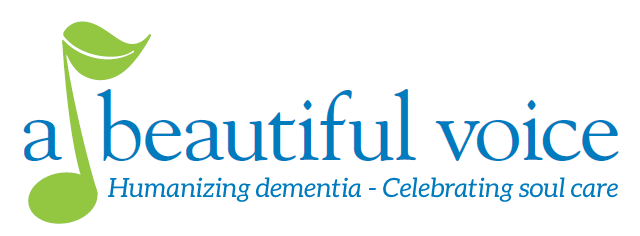In the mid-80’s, I served as an Adjunct Faculty Member at National Louis University in the Chicago area. It was here that I became acquainted with James Ellor, Chair of the Human Service Department, who provided a classroom support service on a weekly basis during my adjunct experience.
Today, he is regarded as The Rev. Dr. James Ellor, a Gerontological expert. His impressive career in Chicago led to a position as Professor at Baylor University-Waco where he has served as Director of the Center for Gerontological Studies.
He is credited for defining the dimension of “soul care” while being involved in Alzheimer’s care over the course of several decades. In a 2016 article, What Alzheimer’s disease teaches us about the soul, he imparts wisdom which caregivers of those living with this diagnosis would want others to know. Paraphrased, he states:
- In 40 years, I’ve never known anyone who cared about a person with Alzheimer’s who would say that the soul has departed prior to death.
He continues with this important assessment – based on his lifework in Gerontology. (PhD in Personality and Theology; M. Div with concentration in Pastoral Care with the Elderly; MSW with a concentration in Gerontology.)
Essentially, this:
- Every Alzheimer’s patient is spiritually like you or me. The soul is still there; we just don’t know how to communicate.
“Soul Care” at the Ranch

Our music experiences at the ranch began with the old hymns with which Mother was familiar since being in her mother’s womb.
But it was not long until our abiding appreciation of music extended to all genres. This allowed us to compile a repertoire with a significant distinction – we were constantly learning new and challenging material.
We had literally hundreds of favorite songs in books of sacred music, spirituals, gospel, swing, and hymns set to jazz accompaniment. From these, we sang our theology every evening at the piano.
Just how extensive our repertoire would become as we learned new material would be known only after years of singing together. Adding blues, rag, and waltz accompaniment brought us pure enjoyment – and a feeling of accomplishment.
It was all good for the soul!
Our Early Period of Discovery
In the late 1990’s to early 2000’s, the AD diagnosis was heavily shrouded with stigma. A person diagnosed with Alzheimer’s was not thought to be capable of learning new material.
We began with the old hymns, because I had never heard Mother sing anything else! She had toured with her college choir. She had a “beautiful voice” and is the inspiration for this e-magazine. She had, of course, attended all of our music performances through the years. But, I simply don’t recall her personally singing anything but sacred music.
We soon progressed to two new books of sacred music which were not familiar to either of us. She still easily read the words and learned the new music.
And So We Sang!
Once the new material had become an “old favorite,” which happened quickly, we would definitely come back to it. But we constantly moved on to acquire new favorites in new books – with music extending to all genres – while adding to what eventually became a vast collection.
Indeed, I bore witness to Mother’s ability to learn new material for many years following her diagnosis of AD.
Research studies in 2004 at the National Institute on Aging found that people diagnosed with Alzheimer’s have more capacity to learn new information than was previously known. Additional research into this area appears to be woefully missing.
Read the article in full
The full article can be found at this link. It includes references to the work of The Rev. Dr. James Ellor (gerontological expert).
It also includes experiences of Dr. John Geyman (a physician), Dr. Eben Alexander (a neurosurgeon) and Dr. Daniel Amen (a neuroscientist).
The article What Alzheimer’s disease teaches us about the soul was written by Jennifer Graham and published in The Deseret News on Aug 18, 2016.
___________________
Posted by: Susan Troyer



